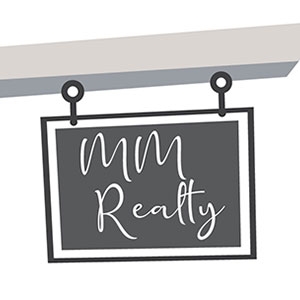Smart Tips for Solo Buyers
Smart Tips for Solo Buyers

Buying a home solo is an empowering yet challenging financial journey. With nearly 20% of all buyers now being single individuals—especially women—navigating the process on one income requires strategy and preparation. This article offers practical tips on credit score, debt-to-income ratio, budgeting, and more to help solo buyers make confident and informed real estate decisions.
Buying a Home Alone: Smart Strategies for Solo Buyers
The dream of homeownership is no longer reserved for couples and families. Today, more individuals are taking the leap on their own, with single buyers—especially women—representing a growing share of the real estate market. In fact, single women now account for approximately 20% of all homebuyers in the U.S. However, buying a home on a single income requires a careful balance of budgeting, credit management, and long-term planning. Whether you’re a first-time buyer or a seasoned renter ready to invest in your future, navigating this journey alone means understanding how to maximize your financial position and minimize risk.
Build and Maintain a Solid Credit Score
Your credit score is one of the most important factors lenders use to determine your mortgage eligibility and interest rate. When you’re applying solo, your score carries even more weight. Most mortgage lenders require a minimum credit score of 620, but aiming for a score of 700 or higher can help you secure more favorable loan terms. Start by reviewing your credit report for errors, paying down credit card balances, and making all payments on time. A higher credit score not only increases your chances of loan approval but can also reduce your monthly mortgage payment through a lower interest rate.
Understand and Control Your Debt-to-Income Ratio (DTI)
Lenders also scrutinize your debt-to-income ratio—your monthly debt payments compared to your gross monthly income. Ideally, your DTI should be under 35%, although some lenders may allow a slightly higher ratio. Keeping your DTI low signals financial stability and ensures you’ll be able to manage your mortgage payments without strain. Calculate your DTI before applying for a mortgage and, if needed, work on reducing outstanding debts like student loans or car payments. The lower your DTI, the more confident a lender will feel in your ability to handle the financial responsibilities of homeownership.
Stick to the 28–30% Rule for Housing Expenses
One common rule of thumb is to keep your housing expenses—mortgage, insurance, taxes, and HOA fees—below 28% to 30% of your gross monthly income. This guideline helps prevent becoming “house poor,” where too much of your income is tied up in home costs, leaving little room for savings or emergencies. For solo buyers, it’s especially important to leave a financial cushion for unexpected expenses, such as medical bills, car repairs, or job changes. Use online mortgage calculators to estimate what you can afford, and don’t stretch your budget too thin, even if you qualify for a higher loan amount.
Get Pre-Approved and Know Your Financing Options
Getting pre-approved for a mortgage is a critical first step—it gives you a clear idea of your budget and shows sellers that you’re a serious buyer. For solo buyers, consider exploring loan programs specifically designed to support lower-income or first-time buyers, such as FHA loans or VA loans (if eligible). These often require lower down payments and more flexible credit terms. Additionally, many local and state governments offer down payment assistance programs that can make purchasing a home more accessible. Take the time to research and compare your options, and work with a mortgage advisor who understands the unique needs of single-income buyers.
Think Long-Term and Plan for Emergencies
Owning a home means being responsible for everything—from routine maintenance to major repairs. Unlike dual-income households, solo buyers can’t rely on a partner to share these unexpected financial burdens. Set aside an emergency fund that covers at least 3 to 6 months of living expenses, including your mortgage. When choosing a property, consider low-maintenance options like condos or townhomes, especially if your schedule or budget is tight. Also, think about your career stability, long-term goals, and whether the property will continue to suit your lifestyle over the next 5 to 10 years.
Conclusion
Buying a home alone may seem daunting, but with the right financial foundation and a clear strategy, it’s entirely achievable—and deeply rewarding. By focusing on your credit score, managing your debt-to-income ratio, budgeting wisely, and planning ahead, you can make confident decisions that reflect your values and financial goals. In a housing market that increasingly welcomes independent buyers, taking control of your homeownership journey can be one of the most empowering steps you take.

Mario Medina
MM Realty
1115 1st Street Suite B San Fernando, CA 91340
Email: mmrealtyla@gmail.com
Phone: (818) 726-4943
I take the time to listen carefully to understand my client’s needs, wants and concerns. I will be ready to take quick action when required and spend more time with those who aren’t quite sure which direction to take. My genuine concern for my client’s best interests and happiness ensures the job is done!
